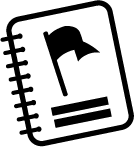Acting responsibly and ethically should be at the core of your practice as a direct care staff member. In your daily interactions with children, families, colleagues and administrators, engage in the following:
- Keep information about children and their families confidential. This refers to reviewing child and family records, having conversations with other staff members at school or in the community, or engaging in conversations with other people you know in the community.
- When you know confidential information about a child, family, or fellow staff member, use that information to help provide resources to support their needs not to judge them.
- If individuals ask you for confidential information about children or families in your program, refer them to your program trainer or director.
- Treat each child, youth, and family member with respect, and acknowledge and honor individual differences in terms of gender, cultural background, family income, abilities, or family composition. Get to know the children and families in your care and incorporate their interests or cultural practices into your daily work as a direct-care staff member. Plan for bias-free experiences and materials.
- Recognize and celebrate the contributions of fellow staff members in your program.
- Act in a responsible, reliable, and dependable manner. Be at work on time, be prepared, and communicate clearly with children, families, colleagues, and administrators.
- Support practices that are ethical, responsible, and developmentally appropriate and speak out when they are not. Familiarize yourself with your program or Service’s regulations, standards, and expectations for professional behavior. Remember to always look to your coach or administrator for guidance on difficult situations.
- Develop and cultivate a collaborative spirit as you work with colleagues on a daily basis. Ask a more experienced fellow staff member questions about their practice or offer ideas to newer staff members who may need assistance.
|


